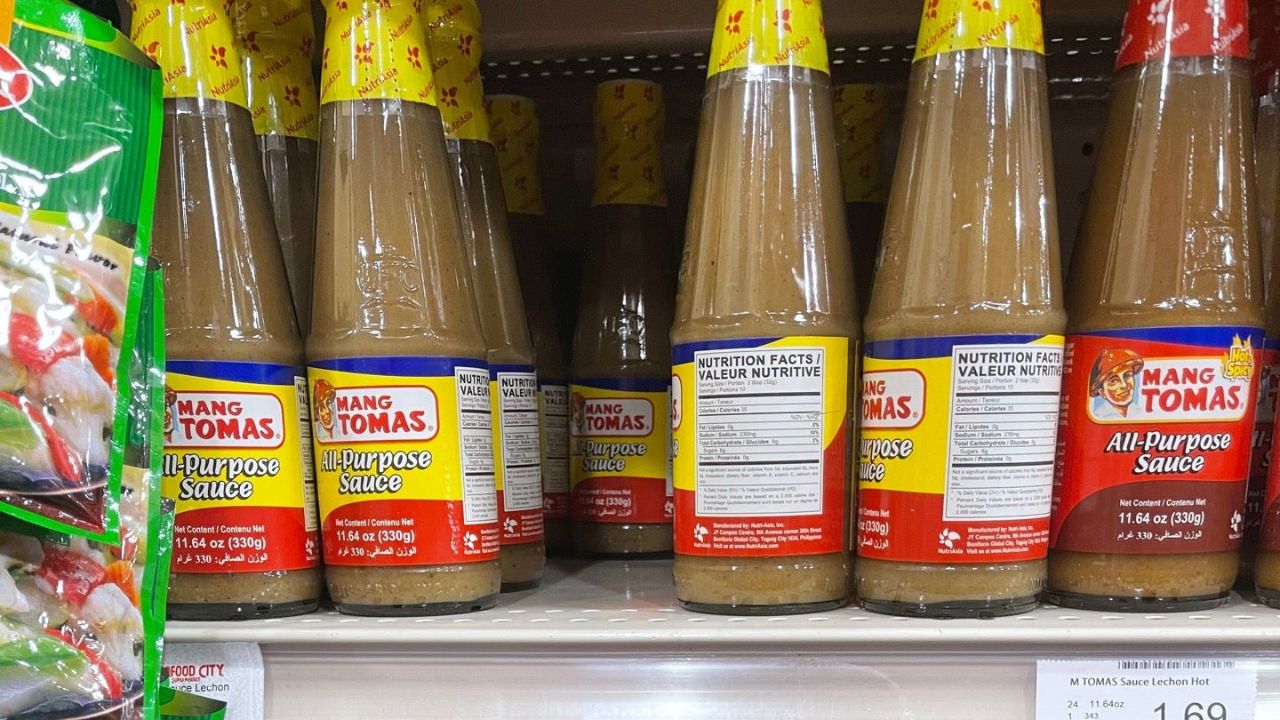Are the beloved flavors of the Philippines under siege? The recent US Food and Drug Administration (FDA) actions regarding popular Filipino condiments have sparked a wave of anxiety and panic buying among Filipino communities across the United States.
The news first began circulating through digital channels. In San Diego County and beyond, the fear of losing access to essential components of their culinary heritage has led to a frantic scramble to secure supplies of familiar staples. In group chats, social media feeds, and local grocery stores, a sense of urgency is palpable. It all began with whispers and rumors. Elaine V, a Filipina based in San Francisco and Las Vegas, relayed the news to a group, querying, "Have you guys heard that they are banning Mang Tomas and banana ketchup?"
The core issue revolves around the FDA's scrutiny of certain ingredients in popular Filipino food products, particularly the presence of potassium iodate, an additive not approved for food use in the US due to potential health concerns. This has led to a DWPE (Detention Without Physical Examination) order affecting several imported products from the Philippines. While not a complete ban, this has created significant disruption, requiring manufacturers to reformulate their products to comply with US regulations. This has led to a cascade of reactions, most notably panic buying and the public expression of strong feelings about the issue.
| Condiment | Brand | Status in US Market | Reason for Scrutiny | Impact on Filipino Community |
| Mang Tomas Lechon Sauce | Multiple | Available (Reformulated) | Potassium Iodate, other potential additives | Panic buying, emotional connection to Filipino cuisine |
| Banana Ketchup | UFC, Jufran, Others | Available (Reformulated) | Potassium Iodate, other potential additives | Stockpiling, concerns about authenticity |
| Bagoong (Anchovy Paste) | Various | Affected by DWPE | Unspecified Food Additives | Demand Surge, emotional response, important part of Filipino culture |
*Reference: FDA.gov
The impact of these developments has been far-reaching. Reports emerged from Seafood City in Las Vegas, where stocks of Mang Tomas Lechon Sauce, UFC, and Jufran banana ketchup quickly dwindled. The narrative intensified as users on social media platforms like TikTok voiced their concerns and frustrations. One user, @dinocornel, captured the sentiment of many: "I don't know whose idea it is to ban Mang Tomas in America, but whoever you are, just know that the entire Filipino community, read my lips, we don't like you."
The FDA's concerns center on "harmful food additives." Potassium iodate, a substance used in some Filipino sauces, has been flagged as problematic. The agency doesn't approve its usage in food products because of possible health risks. This has set the stage for a complex interplay of regulatory actions, business adjustments, and public responses.
The situation's complexity has made its way into the retail market. In Seattle, the perceived restrictions on banana ketchup, lechon sauce, and bagoong led to extensive hoarding, emptying shelves and creating artificial shortages. Jay Agabao, manager of Sky Guam Distributors Inc., described the difficulties faced by importers, stating, "When clients ask for these specific products, we have to inform them we can no longer import them."
Nutriasia, the major player behind brands like Mang Tomas, UFC, and Jufran, has since resumed shipments to the United States. This followed a period of reformulation designed to meet the FDA's new requirements. The adjustments were made in response to regulatory demands and to ensure continued access to Filipino favorites.
The reintroduction of these goods, however, was not without its challenges. The original schedule involved delays, potentially influencing the timing of product accessibility. The supplier said that new shipments of Mang Tomas, ketchup, Jufran, and UFC would probably arrive by the end of November.
The ripple effects of this controversy have affected the entire Filipino community. The recall of Mang Tomas sauce, in particular, became a significant topic of conversation, leading to discussions regarding ingredients and related health risks. This has prompted discussions across different countries and reinforced the role that Filipino cuisine plays in people's identities.
The controversy also highlighted the integral role of specific condiments, like bagoong, in Filipino cooking. Restoring access to bagoong guarantees that a critical element of Filipino culinary tradition remains accessible to those residing in the US. The significance of bagoong reaches beyond mere flavour.
The recent actions have, in effect, highlighted the importance of food and its ability to connect people to their cultural heritage, as well as the complexities of navigating international food regulations.
The situation has been further complicated by the prevalence of social media, which has accelerated the flow of information and rumors. Several social media users expressed fears of a complete ban on Mang Tomas banana sauce. These worries have further fueled the panic, causing the widespread buying of Mang Tomas sauce across US supermarkets and stores.
The situation, which has developed rapidly, highlights the role of international food regulations, the need for manufacturers to adjust, and the strong emotions linked to culinary heritage and the way it affects the lives of individuals. The return of the sauces and the changes made to them mark an important transition as these essential components of Filipino cooking are brought back to the shelves and into homes.



Detail Author:
- Name : Prof. Vivianne Koelpin DVM
- Email : ines64@gmail.com
- Birthdate : 1972-05-28
- Address : 65643 Leo Path Apt. 248 Hannahtown, SC 81544-5589
- Phone : (279) 741-6375
- Company : Cruickshank-Ebert
- Job : Mechanical Drafter
- Bio : Voluptatum sit velit porro consequatur aut. Labore sit deserunt harum alias placeat. Animi ea sit eius et. Rerum et et repellat sit maxime quas odit.